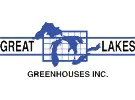When you think of greenhouse-grown products, perhaps cucumbers, tomatoes, or leafy greens come to mind. And maybe not top of mind is baby eggplant. “There are eggplants grown in greenhouses, but there are not a lot of organic indoor baby eggplants like we do,” says Jeff Richardson of Great Lakes Greenhouses Inc. “It’s a unique, niche crop, and it does very well for us throughout the year. It has developed a loyal following, and the growers love to grow it because it’s a very stable crop.”
Great Lakes Greenhouses started growing organic baby eggplant on just one acre. The popularity of this item has required Great Lakes to increase that acreage to 3.5 acres, and it offsets the planting schedule to allow it to maximize yields and freshness year-round. “We’ve divided up the plantings into sections allowing us to always have production on this item and avoid gaps in picking. It has worked out well,” he says.

And demand seems to be growing for the baby organic eggplant thanks to the meeting of a few consumer trends. “Grilling season right now, that’s one time when it’s popular. Where we’re seeing the most growth is as an alternate meat solution. It was an eye-opener for us, and that’s driving it,” says Richardson. “And the organic category continues to grow. It’s still small compared to conventional, but that’s helped drive the demand.”
Organic appeal
While there are times in the year when the baby organic eggplant faces competing conventional supplies which flood the market, there’s an appeal to the organic aspect of the product. It also reflects some of the shifts in organic produce buying being seen in the marketplace.
“As much as people want to go to organic, the true organic buyer doesn’t look at the cost. But the in-between consumer that’s making the shift can adjust the shift based on finance. If the gap gets too drastic, it changes. That gap has really tightened, and it’s helping the category,” says Richardson. He also notes that as organic growers are becoming more efficient in their growing practices, the costs aren’t as great as they were at the start. “Those costs continue to drop, and that gets passed onto the end consumer. I see it going in the direction that the organic category will become the norm-especially with the younger generation who are very interested in what they consume,” he says.
 Another upward trend Great Lakes is noticing in the organic sector is private labeling. “COVID has changed the shopping dynamics, and consumers are trusting their retailers more. So, the private label is gaining popularity both in Canada and the U.S., and retailers are asking us about that option. That’s a key category that continues to grow, especially in the U.S. and especially on organics,” says Richardson.
Another upward trend Great Lakes is noticing in the organic sector is private labeling. “COVID has changed the shopping dynamics, and consumers are trusting their retailers more. So, the private label is gaining popularity both in Canada and the U.S., and retailers are asking us about that option. That’s a key category that continues to grow, especially in the U.S. and especially on organics,” says Richardson.
 For more information:
For more information:
Jeff Richardson
Great Lakes Greenhouses Inc.
Tel: +1 (519) 419-4937
[email protected]
https://greatlakesg.com/
